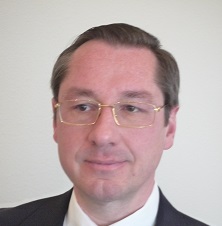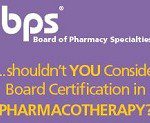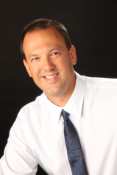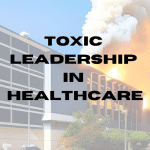Aristotle said that “the roots of education are bitter, but the fruit is sweet.” Those who take up the task of getting educated on any issue find this bitterness quite discouraging more often than not. It’s even harder still, once educated, to try and impart some of that learning to others – especially if there is a lot of misunderstanding and myths surrounding the subject. This is certainly the case when it comes to combating narcotic abuse. It has been called an epidemic. In some senses it is. But whatever term we wish to use, most are agreed that something needs to be done.
I reached out to a Northern California pharmacist, Ivan Petrzelka, to talk to him a little about his work with www.NoRxAbuse.org. I warmly invite my readers to listen to his answers and visit his website and consider possible ways to partner with this good work.
1) Ivan, could you tell us a little about yourself and where you grew up? When did you decide to become a pharmacist? Tell us about moving to the United States.
I grew up in former Czechoslovakia where I studied chemistry in college with the intent to go into petrochemical research. During my college years I developed interest in biochemistry and thus, after finishing my BS, I continued my studies at the Charles University where I earned a doctorate in Clinical Pharmacy.
In early 1990s I had the opportunity to relocate to California where I started working as a community pharmacist for a large chain in Los Angeles area. During this time, I became interested in the business aspect of the pharmacy profession and enrolled into MBA program for working professionals at Newport University. Shortly after completing the program, an opportunity at Owens Healthcare presented itself and I relocated to Northern California.
Over the years, I developed interest in legal matters within the healthcare industry which led me to pursue a JD degree at California Southern University while working full time as a pharmacist. I graduated in 2013, passed the Bar examination, and was admitted to the State Bar of California as Attorney at Law the same year.
2) According to your LinkedIn profile you currently work for Owen’s Healthcare. Could you talk to us about what you do there?
I started with Owens Healthcare in 2002 as a Pharmacy Manager and fulfilled various clinical and management roles since then. My current role is Manager of Clinical Services, which encompasses development and implementation of a new practice model into community pharmacies operated by Owens Healthcare in Northern California.
The constantly shifting landscape of healthcare management requires a paradigm shift from the traditional volume-based metrics toward outcomes-based programs. In my opinion, firms that will develop and implement patient-oriented models will succeed while those that will continue on the traditional volume-based path may not. Owens Healthcare is a forward-thinking organization that embraces change for the benefit of our patients.
3) One of your passions if for the responsible prescribing and utilization of opioids. Could you share with my readers, many of whom are not pharmacists, what the problem is right now with opioids in our country?
Management of chronic pain in the United States had undergone a significant shift since 1990s, from undertreatment to overprescribing of opioids. Prior to this shift many chronic pain patients suffered unnecessarily because physicians were hesitant to prescribe powerful opioids for management of chronic non-cancer pain. The precipitating event in this shift was arguably the 1999 VA initiative “Pain as the 5th Vital Sign” which subsequently led to the passage of HR 3244 by the Congress, declaring the years 2001 – 2010 The Decade of Pain Control and Research. Since then, the attitudes toward the use of opioids have changed dramatically to the point of overuse. While improved access to pain treatment benefited some patients, the disproportionate emphasis on the use of opioids arguably led to substantial increase in misuse and abuse of these drugs.
Opioid analgesics are indispensable in treatment of pain, but they must be used responsibly. Studies published in the 1990s that understated the risks of dependency and addiction associated with prolonged use of opioids arguably contributed to today’s situation. One common pattern of opioid abuse is continuation of treatment long after the initial injury has healed, particularly in the context of work-related injuries where the current administrative system arguably created somewhat perverse set of incentives for prolonged, or even indefinite, treatment. Of course, the absence of an objective test for pain does not help either. The physician is largely limited in his prescribing decisions by patient’s subjective assessment of pain.
The perception of safety of prescription drugs also contributed to the increase in their abuse. Statistics show that many abusers were initially given prescription opioids by friends or relatives. While many people would probably hesitate to use street drugs of unknown origin, they may not hesitate when offered a medication approved by the FDA, regardless of the fact that improper use of such medication may have deadly consequences.
Furthermore, ease of access is frequently cited as a major factor in abuse of prescription drugs. Obtaining prescription opioids is as easy as looking into friend’s medicine cabinet or a visit to the nearest ER with an unspecified complaint of pain. The visit and the prescription are generally covered by patient’s insurance with little or no co-payment. Although opioids comprise the vast majority of abused prescription drugs, the abuse is not limited to this category. Anxiolytics, spasmolytics and stimulants are being abused at alarming rates as well. More detailed info is included on our website at http://NoRxAbuse.org . Abundance of data is also available from various government resources, e.g., the Drug Enforcement Administration, Centers for Disease Control and Prevention, etc.
4) Could you tell us about how “NoRxAbuse” got started and what the goals and purpose of this coalition is?
NoRxAbuse is a non-profit coalition for safe prescribing and dispensing of prescription drugs that I started in response to the exponential increase of prescription drugs abuse in the area where I practice. My observations over the last decade led me to believe that regulation and enforcement alone are not the answer to this growing problem. The history of various regulatory failures would seem to indicate that a different approach should be applied to address this issue.
The motto of our organization is: “Education is more powerful than regulation.” Our objective is to increase public awareness of prescription drug abuse and to work with prescribers on developing viable solutions without compromising the quality of patient care.
5) Are there ways that others can get involved in and help with these goals? Where should they go to find out more
We are looking for partners who are interested in joining our effort to prevent future abuse and to help those in need. Please visit our site at http://NoRxAbuse.org to contact us. There are many ways for individuals and organizations to help in this effort, e.g., developing educational materials, educating public and healthcare professionals, actively engaging in responsible prescribing and dispensing, as well as providing financial support for organizations like ours. I would like to encourage clinicians to share with me their ideas and concepts that may be helpful in this effort.
6) Retail pharmacists are often frustrated with our extensive opioid-dependent population. Most pharmacists simply don’t have the time to carefully research every patient’s prescription filling history. What advice would you specifically give to pharmacists who dispense opioids?
While I do not have any specific formula for surefire success, I would like to suggest that we focus on educating our patients, caregivers and prescribers. Knowing our patients and local prescribers seems to be the logical starting point. In my practice, I am trying to reach out to local providers and to develop open dialog on this subject. Although the AMA recently passed a resolution declaring questions from pharmacists as impermissible interference with the practice of medicine, most of the prescribers I approached with my effort were very receptive to what I had to say.
In light of the recent enforcement actions against pharmacists, some pharmacists may be overly conservative when evaluating prescriptions for frequently abused drugs which may result in denial of care to some patients. This is the opposite extreme that is arguably undesirable as well. Engaging patients, prescribers and local community will probably generate better response than denying care. Encouraging proper and timely disposal of unused medication will also lower the potential for abuse as many abusers start by diverting medication from family members. One of the frustrations that I have encountered in our area is the lack of treatment opportunities for those who developed substance abuse problem. The public health system in our area is severely underfunded and private resources are scarce as well.
Using the Prescription Drug Monitoring Program to determine whether the patient may be engaging in “doctor shopping” had helped on many occasions, albeit the California system still leaves much to be desired in terms of accessibility and timeliness of the data available. I also encourage all local providers to utilize the system. Unfortunately, not all providers are as enthusiastic abut the system as they probably should be. I would also encourage pharmacists to become preceptors and share their knowledge and experience in this area with pharmacy students. While the pharmacy schools prepare the students clinically, most graduates are not ready to face the abusers and diverters.
7) Ivan, when you aren’t working, what are some of your hobbies or other interests?
My biggest passion outside of work is aviation. I hold a commercial pilot license and flying offers a great opportunity to clear my mind by focusing on things other than work. I also enjoy scuba diving and photography.
©Jason Poquette and The Honest Apothecary. Unauthorized use and/or duplication of this material without express and written permission from this blog’s author and/or owner is strictly prohibited. Excerpts, quotes and links may be used, provided that full and clear credit is given to Jason Poquette and The Honest Apothecary with appropriate and specific links to the original content..
Ivan Petrzelka NoRxAbuse.org Prescription Drug Abuse
Last modified: April 17, 2023

















